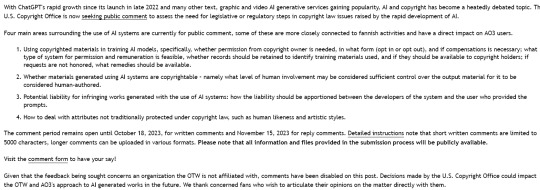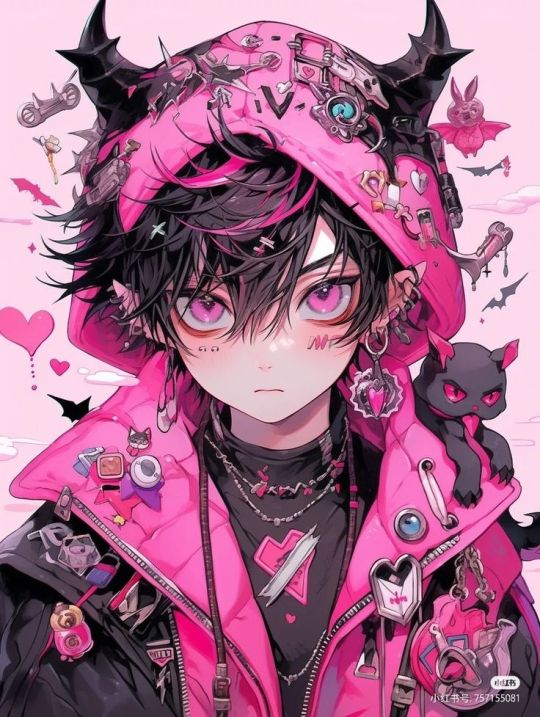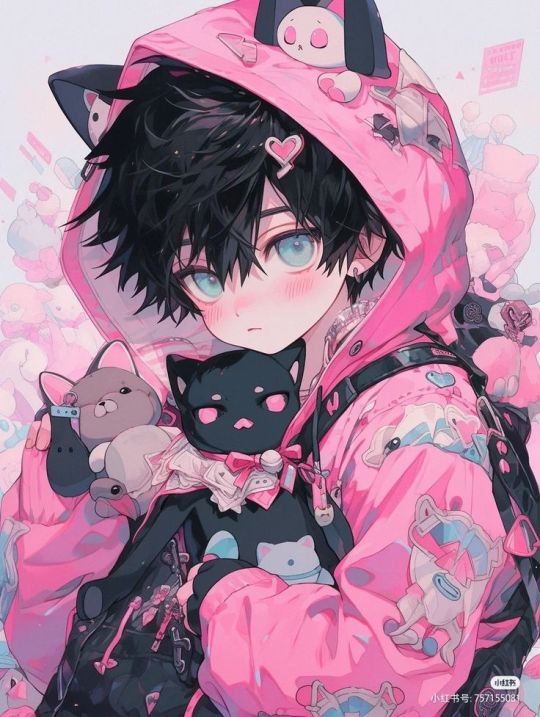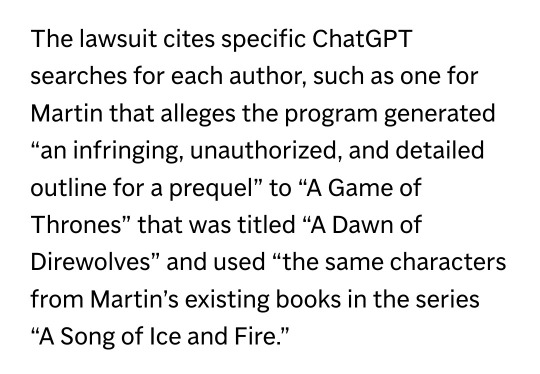#Chatgpt copyright
Text
AI Copyright: Protecting Creativity in the Digital World
1. Use All in One Marketing BlocksTo make your promotion more appealing, consider using All in One Marketing Blocks. It's a fantastic tool that helps you create eye-catching ads and content, making your promotion more effective and engaging.
Click HERE
Recommending All in One Marketing BlocksTo enhance your affiliate marketing efforts, All in One Marketing Blocks is an excellent tool. It allows you to create stunning visuals and graphics to showcase the benefits of AI copyright tools. Engaging visuals can capture your audience's attention and encourage them to explore further.
In Conclusion
copyright is like a guardian for creators, protecting their hard work and imagination. By explaining AI copyright simply, highlighting its features, sharing success stories, and using tools like All in One Marketing Blocks, you can effectively promote AI copyright services as an affiliate. Join the movement and help creators keep their work safe and secure in the digital world!
#ai copyright#ai copywriting#Ai copy right#ai art generator#ai art copyright#ai artwork copyright#artwork copyright#keywords research#banner design#Free too#l#Chatgpt copyright#Copyright ai#ai generated#copy right ai
0 notes
Text
the US Copyright Office is asking for public comment on AI and copyright!!! now is the time to be LOUD about it so there can be government regulations.

GO COMMENT RIGHT NOW:
13K notes
·
View notes
Note
got anything good, boss?
Sure do!
-
"Weeks after The New York Times updated its terms of service (TOS) to prohibit AI companies from scraping its articles and images to train AI models, it appears that the Times may be preparing to sue OpenAI. The result, experts speculate, could be devastating to OpenAI, including the destruction of ChatGPT's dataset and fines up to $150,000 per infringing piece of content.
NPR spoke to two people "with direct knowledge" who confirmed that the Times' lawyers were mulling whether a lawsuit might be necessary "to protect the intellectual property rights" of the Times' reporting.
Neither OpenAI nor the Times immediately responded to Ars' request to comment.
If the Times were to follow through and sue ChatGPT-maker OpenAI, NPR suggested that the lawsuit could become "the most high-profile" legal battle yet over copyright protection since ChatGPT's explosively popular launch. This speculation comes a month after Sarah Silverman joined other popular authors suing OpenAI over similar concerns, seeking to protect the copyright of their books.
Of course, ChatGPT isn't the only generative AI tool drawing legal challenges over copyright claims. In April, experts told Ars that image-generator Stable Diffusion could be a "legal earthquake" due to copyright concerns.
But OpenAI seems to be a prime target for early lawsuits, and NPR reported that OpenAI risks a federal judge ordering ChatGPT's entire data set to be completely rebuilt—if the Times successfully proves the company copied its content illegally and the court restricts OpenAI training models to only include explicitly authorized data. OpenAI could face huge fines for each piece of infringing content, dealing OpenAI a massive financial blow just months after The Washington Post reported that ChatGPT has begun shedding users, "shaking faith in AI revolution." Beyond that, a legal victory could trigger an avalanche of similar claims from other rights holders.
Unlike authors who appear most concerned about retaining the option to remove their books from OpenAI's training models, the Times has other concerns about AI tools like ChatGPT. NPR reported that a "top concern" is that ChatGPT could use The Times' content to become a "competitor" by "creating text that answers questions based on the original reporting and writing of the paper's staff."
As of this month, the Times' TOS prohibits any use of its content for "the development of any software program, including, but not limited to, training a machine learning or artificial intelligence (AI) system.""
-via Ars Technica, August 17, 2023
#Anonymous#ask#me#open ai#chatgpt#anti ai#ai writing#lawsuit#united states#copyright law#new york times#good news#hope
748 notes
·
View notes
Text
FYI, I have also locked all my fanfics down to registered users only because of the AI scraping on AO3. I'm one of many fan creators doing this right now and I know it stinks for users without an AO3 account, but it's the only option writers have available to us at the moment to stop our work from being scraped and stolen.
If this makes you mad, the Federal Register is currently open to comments on AI accountability until June 12th, 2023.
It only takes a second to leave a comment to ask for legislation that works used in AI creations or training MUST secure the express consent of the original creator before they can be used. If we can get protections for artists, writers, musicians and everyone who creates that their work cannot be used in AI without their permission, we can go back to making fanworks freely available without fear of them being misused. Until then, we're stuck playing defense until the courts catch up.
(If you're a fan creator looking to do this as well, AO3 has a tool to let you do all your fics at the same time in seconds. On your dashboard, go to Edit Works and you'll be able to change the status on everything at once.)
If you missed the context, AO3 recently found that the archive was scraped for use in AI services like ChatGPT and Sudowrite. While they put in protections in December 2022 to try to stop it from happening in the future, it's not foolproof and there is nothing they can do about works already swiped prior to that date. The archive is recommending fan creators restrict their works to registered users only to prevent against additional large scale scraping in the future.
#ao3#archiveofourown#archive of our own#ai#artificial intelligence#Sudowrite#tech news#fandom#fanfiction#fanfic writing#pro tip from me to you: you own the copyright to your fanworks#not the characters and details from the source material obviously#but your writing itself is yours and can be registered and protected as such#ChatGPT#tech bros#psa#important psa#ao3 writer
709 notes
·
View notes
Text
HEY YOU! DO YOU HATE AI?
The U.S. copyright office is seeking public comments on AI generated artwork and copyright law. BASICALLY that means that they're asking for everyday American people to tell them how they feel about how copyright law should handle AI.
AO3 explains it better than I could:

SO PLEASE PLEASE PLEASE Go tell the U.S. copyright office that AI devs should legally require consent for training their models and that AI generated works should be non-copyrightable!
#ai#ai art#ai artwork#anti ai#ai is theft#artificial intelligence#ai is not art#anti ai writing#chatgpt#copyright
135 notes
·
View notes
Text
𝓛𝓸𝓿𝓮 𝓹𝓪𝓼𝓼𝓲𝓸𝓷𝓪𝓽𝓮𝓵𝔂 𝓽𝓸 𝓵𝓲𝓿𝓮 𝓪 𝓹𝓲𝓷𝓴 𝓵𝓲𝓯𝓮




𝐹𝑒𝑒𝓁 𝓂𝓎 𝓇𝒽𝓎𝓉𝒽𝓂, 𝒸𝑜𝓂𝑒 𝓌𝒾𝓉𝒽 𝓂𝑒
상상해 봐 뭐든지
#anime and manga#anime aesthetic#free!#anime gif#anime edit#anime fanart#fat anime#anime#anime art#ai#machine learning#copyright#technology#artificial intelligence#chatgpt#ai artwork#ai image#ai art#ai generated#tumblog#tumblr things#tumblr stuff#hellsite#blog#poets on tumblr#writers on tumblr#photographers on tumblr#artists on tumblr#tumblr milestone#kpop
111 notes
·
View notes
Text

Atlantis Deep Dive
Atlantis generated with midjourney AI I created
#music#denver#electronic#zombie#art#colorado#soundcloud#art style#art tag#dj#ai artwork#ai#ai art#ai generated#ai image#artificial intelligence#chatgpt#technology#stable diffusion#copyright
78 notes
·
View notes
Text
I just had a realization.
So I mentioned before that the thing that scares me about AI is that corporations really believe (incorrectly) that you can use it to replace human artists; okay this has literally nothing to with copyright
The things being done to try to kill AI (actually impossible, it's open source) is to sue it for copyright infringement; but that will do literally nothing to stop corporations from using AI to replace their employees because media corporations have a huge libraries of content that they own and they can use themselves freely; all Discovery-Warner has to do is using the open source code to create their own AI and then feed it their own library and presto! Completely legal AI generated content that can be used to downsize their operations and create mediocre products
This lawsuits are doing literally nothing to stop AI and will certainly not affect the actual negative outcomes of AI art; the most effective action so far was the Hollywood Strike which will force companies to hire writers instead of AI programs (and btw the strike wasn't even against AI as a whole, just using it to short-staff writers rooms)
55 notes
·
View notes
Text

#ai#socialism#anarchy#anti capitalism#twitter post#communism#rip twitter#tweet#leftism#twitter x#xitter#ai art#ai artwork#chatgpt#artificial intelligence#ai image#technology#copyright#ai generated#machine learning#late stage capitalism#capitalism#inequality#economics#current events#classism
56 notes
·
View notes
Text

So by popular demand here is my own post about


and why
This case will not affect fanwork.
The actual legal complaint that was filed in court can be found here and I implore people to actually read it, as opposed to taking some rando's word on it (yes, me, I'm some rando).
The Introductory Statement (just pages 2-3) shouldn't require being fluent in legalese and it provides a fairly straightforward summary of what the case is aiming to accomplish, why, and how.
That said, I understand that for the majority of people 90% of the complaint is basically incomprehensible, so please give me some leeway as I try to condense 4 years of school and a 47 page legal document into a tumblr post.
To abbreviate to the extreme, page 46 (paragraph 341, part d) lays out exactly what the plaintiffs are attempting to turn into law:
"An injunction [legal ruling] prohibiting Defendants [AI] from infringing Plaintiffs' [named authors] and class members' [any published authors] copyrights, including without limitation enjoining [prohibiting] Defendants from using Plaintiff's and class members' copyrighted works in "training" Defendant's large language models without express authorization."
That's it. That's all.
This case is not even attempting to alter the definition of "derivative work" and nothing in the language of the argument suggests that it would inadvertently change the legal treatment of "derivative work" going forward.
I see a lot of people throwing around the term "precedent" in a frenzy, assuming that because a case touches on a particular topic (eg “derivative work” aka fanart, fanfiction, etc) somehow it automatically and irrevocably alters the legal standing of that thing going forward.
That’s not how it works.
What's important to understand about the legal definition of "precedent" vs the common understanding of the term is that in law any case can simultaneously follow and establish precedent. Because no two cases are wholly the same due to the diversity of human experience, some elements of a case can reference established law (follow precedent), while other elements of a case can tread entirely new ground (establish precedent).
The plaintiffs in this case are attempting to establish precedent that anything AI creates going forward must be classified as "derivative work", specifically because they are already content with the existing precedent that defines and limits "derivative work".
The legal limitations of "derivative work", such as those dictating that only once it is monetized are its creators fair game to be sued, are the only reason the authors can* bring this to court and seek damages.
*this is called the "grounds" for a lawsuit. You can't sue someone just because you don't like what they're doing. You have to prove you are suffering "damages". This is why fanworks are tentatively "safe"—it's basically impossible to prove that Ebony Dark'ness Dementia is depriving the original creator of any income when she's providing her fanfic for free. On top of that, it's not worth the author’s time or money to attempt to sue Ebony when there's nothing for the author to monetarily gain from a broke nerd.
Pertaining to how AI/ChatGPT is "damaging" authors when Ebony isn't and how much of an unconscionable difference there is between the potential profits up for grabs between the two:
Page 9 (paragraphs 65-68) detail how OpenAI/ChatGPT started off as a non-profit in 2015, but then switched to for-profit in 2019 and is now valued at $29 Billion.
Pages 19-41 ("Plaintiff-Specific Allegations") detail how each named author in the lawsuit has been harmed and pages 15-19 ("GPT-N's and ChatGPT’s Harm to Authors") outline all the other ways that AI is putting thousands and thousands of other authors out of business by flooding the markets with cheap commissions and books.
The only ethically debatable portion of this case is the implications of expanding what qualifies as "derivative work".
However, this case seems pretty solidly aimed at Artificial Intelligence, with very little opportunity for the case to establish precedent that could be used against humans down the line. The language of the case is very thorough in detailing how the specific mechanics of AI means that it copies* copywritten material and how those mechanics specifically mean that anything it produces should be classified as "derivative work" (by virtue of there being no way to prove that everything it produces is not a direct product of it having illegally obtained and used** copywritten material).
*per section "General Factual Allegations" (pgs 7-8), the lawsuit argues that AI uses buzzwords ("train" "learn" "intelligence") to try to muddy how AI works, but in reality it all boils down to AI just "copying" (y'all can disagree with this if you want, I'm just telling you what the lawsuit says)
**I see a lot of people saying that it's not copyright infringement if you're not the one who literally scanned the book and uploaded it to the web—this isn't true. Once you "possess" (and downloading counts) copywritten material through illegal means, you are breaking the law. And AI must first download content in order to train its algorithm, even if it dumps the original content nano-seconds later. So, effectively, AI cannot interact with copywritten material in any capacity, by virtue of how it interacts with content, without infringing.
Now that you know your fanworks are safe, I'll provide my own hot take 🔥:
Even if—even if—this lawsuit put fanworks in jeopardy... I'd still be all for it!
Why? Because if no one can make a living organically creating anything and it leads to all book, TV, and movie markets being entirely flooded with a bunch of progressively more soulless and reductive AI garbage, what the hell are you even going to be making fanworks of?
But, no, actually because the dangers of AI weaseling its way into every crevice of society with impunity is orders of magnitude more dangerous and detrimental to literal human life than fanwork being harder to access.
Note to anyone who chooses to interact with this post in any capacity: Just be civil!
#fanfiction#ao3#fanart#copyright law#copyright#chatgpt#openai#openai lawsuit#chatgpt lawsuit#author's guild#author's guild lawsuit#george rr martin#george rr martin lawsuit#copyright infringement#purs essays#purs post#purs discourse
82 notes
·
View notes
Text
why would you ask ChatGPT to write shitty 8th grade reading level fanfic about something you actually care about and toe a whole bunch of ethical lines, when you could instead ask it to write only insane shit that no human being in their right mind would ever voluntarily create themselves




(yes the answers generated for all of these supremely fucked in the most chaotic way possible. yes, I still think even this use of AI has some ethical complexities to it.)
#shut up e#ai#chatgpt#I'll resist getting into my major ethical concerns about ChatGPT + my eye-rolling about tumblr's ridiculous 'it's stealing my fanfic!' pani#(NLP-based AI does not work the same way as image-generation AI - it's not stealing your fanfic for its own like frankenfic creations.#it's doing worse things that don't involve copyright#but I WONT GET INTO IT-)#instead I will continue to use ChatGPT's creative writing function the way that god intended: for insane shit no human would create
69 notes
·
View notes
Text
i did want a jarvis but not like that
#ai#chatgpt#gemini#bard#generative ai#openai#writing#writers on tumblr#authors of tumblr#tumblr writers#writer on tumblr#creative writing#writeblr#writers#writer problems#artist#artist on tumblr#artists on tumblr#art#artwork#copyright
7 notes
·
View notes
Text
the us copyright office is looking for public comment regarding whether there is a need for legislative or regulatory steps in copyright law issues involving ai. if you feel that your art is threatened by ai like chatgpt or craiyon, this is a chance to do something about it! if you live in the us, you can comment here (only requires your name). also, here's the article by ao3 about it
39 notes
·
View notes
Text
so like, do you guys like piracy or buying stuff?
#i just genuinely want to gage what ppl tend to think of it#especially with the whole wave of ai stuff and claims of stealing#i want to know at which point it becomes stolen art and immoral in most people's eyes#polls#pirate#copyright#ai#chatgpt#discourse
9 notes
·
View notes
Text

Rick Sanchez / Dreamshaper V.7
#rick and morty#rick and morty season 7#rick and morty season 6#rick and morty fanart#rick sanchez#morty smith#ai#ai artist#ai image#ai generated#ai artwork#chatgpt#artificial intelligence#copyright#ai art#technology#machine learning#rick and morty comic#rick and morty oc
30 notes
·
View notes
Text
Rhaenyra Targaryen and her Dragon syrax AI

#house targaryen#asoiaf#artbreeder#aegon targaryen#rhaenys the conqueror#artists on tumblr#a song of ice and fire#aegon targaryen x you#pre asoiaf#ai#ai art#ai generated#ai image#ai artwork#artificial intelligence#technology#protect art!#copyright#chatgpt#ai art generator#ai artist#ai art gallery#rhaenys targaryen#rhaenyra targaryen#daemon x rhaenyra#subspace rhapsody#rhaegar#house stark#welcome home
32 notes
·
View notes